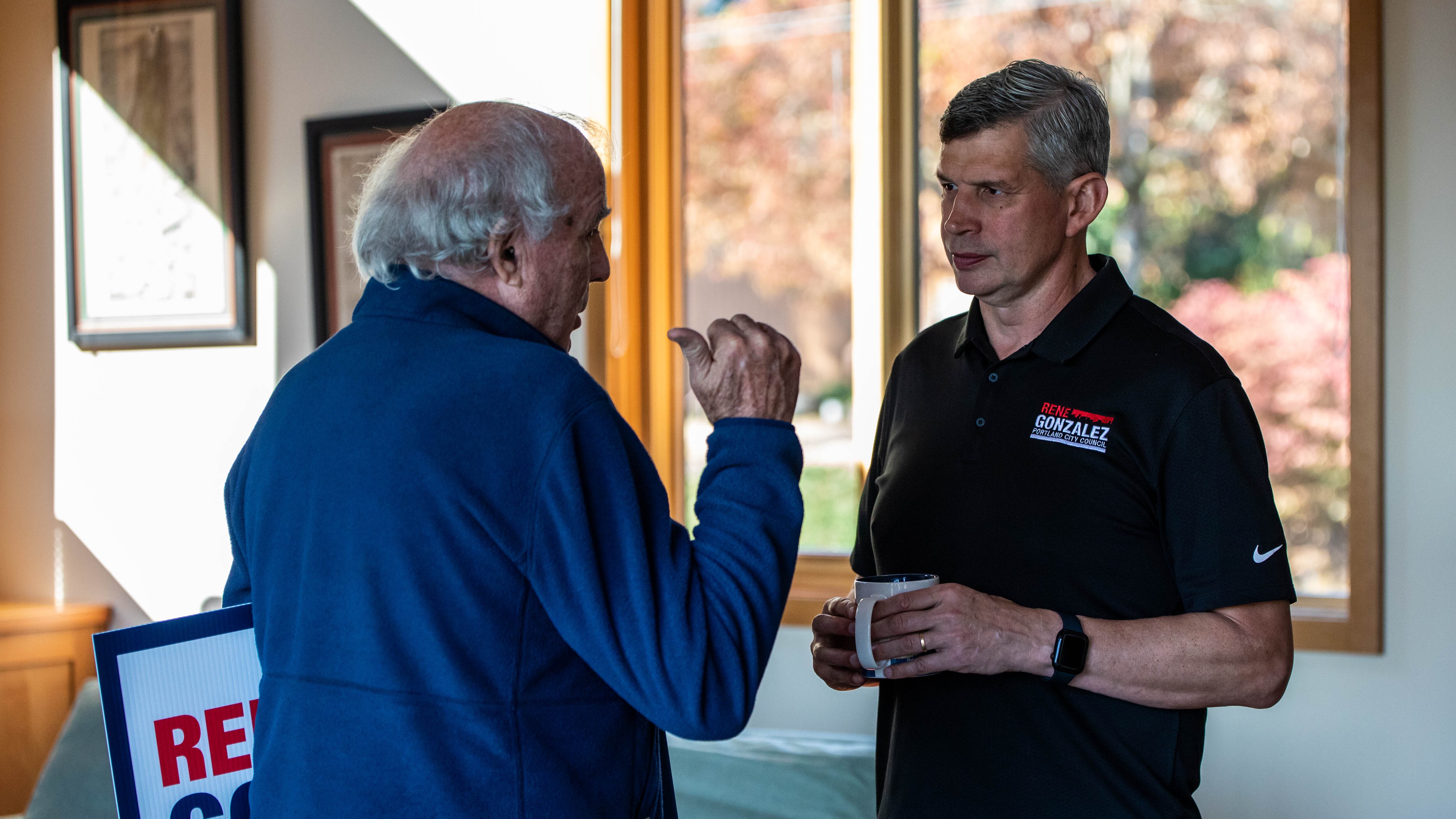Perhaps the most substantive policy idea that Rene Gonzalez has floated in this election is that Portland doesn’t just need more cops—it needs another court.
After a pair of meetings, one with Washington County District Attorney Kevin Barton and another with Portland’s police union, Gonzalez was convinced Portland’s criminal justice system needed a shakeup.
Crime, by all appearances, is up. But Gonzalez was shocked to learn that prosecutions of misdemeanors in Portland are down. Way down. In 2011, there were 18,828 misdemeanor cases. In 2019, that number had dropped to 8,824. Then the pandemic hit. In 2021, there were 2,840 cases.
“Portlanders aren’t getting justice,” Gonzalez says.
There are many reasons for the lethargy within Portland’s criminal justice system. Police are short-staffed and arrests are down. The county jail lost capacity during the pandemic and refused to accept low-level misdemeanors. The Multnomah County Circuit Court is backlogged and attorney caseloads have skyrocketed.
A lawyer who Gonzalez met at a constituent meeting in East Portland proposed a solution: resurrect an institution that has been extinct for over 50 years, Portland’s municipal court, and task it with addressing low-level crime.
Gonzalez mulled the idea—including running it by his father, a former prosecutor and trial judge—and decided to make it a central plank of his campaign.
There are currently 150 municipal courts across the state, including several in Multnomah County. Sam Erskine, the contract prosecutor for Troutdale’s municipal court, says such courts are “much more a reflection of the city” they represent. When well managed and funded, he says, they can work well—particularly given the challenges faced by circuit courts still reeling from pandemic-related backlogs.
Prior to 1970, many crimes, including misdemeanors, were under the jurisdiction of Portland’s municipal court. It was the subject of frequent critiques. Former Gov. Neil Goldschmidt, then a City Council candidate, told an Oregonian reporter in 1970 that it dispensed “bargain basement justice.” In an effort to boost efficiency and eliminate unequal sentencing, the municipal court was scrapped and its jurisdiction handed over to the Multnomah County Circuit Court.
The decision lives in on law, which shifts jurisdiction over “all violations of [Portland’s] charter and ordinances” from the municipal court to the circuit court, as well as in the city charter, where a section devoted to the municipal court has been scrubbed.
Gonzalez says he wants to spend $1 million on a pilot project, with legal work done by law students. In theory, Gonzalez says, the court could pay for itself. But that has its own complications. In an investigation in the wake of the Ferguson, Mo., unrest, the U.S. Department of Justice pointed to exploitative practices, including excessive fees, in the city’s municipal court system.
Gonzalez’s “initial take” is that he can get a pilot running without changes to state law— although he admits he might need changes to the city charter to do it.
He isn’t the first to float the idea. The last person to do it, City Commissioner Dan Saltzman, held the seat Gonzalez is now fighting for. Saltzman’s proposal to reinstate the municipal court to crack down on traffic violations was quickly batted down after a feasibility study found it would lose the city money.
Now, the bigger challenge might be rallying support from a city that has been more eager in recent years to contract rather than expand its judicial system. Gonzalez says he’s ready for pushback: “This is fundamentally questioning the status quo.”
